'Here & Now' Highlights: State Rep. Sylvia Ortiz-Velez, Jane Graham Jennings, Chairman Tehassi Hill
Here's what guests on the Jan. 31, 2025 episode said about proposed state legislation to limit immigration raids in schools and churches, how threats of freezes on federal grants to states are affecting nonprofit agencies, and how these uncertainties in funding are impacting tribal nations.
By Frederica Freyberg | Here & Now
February 3, 2025
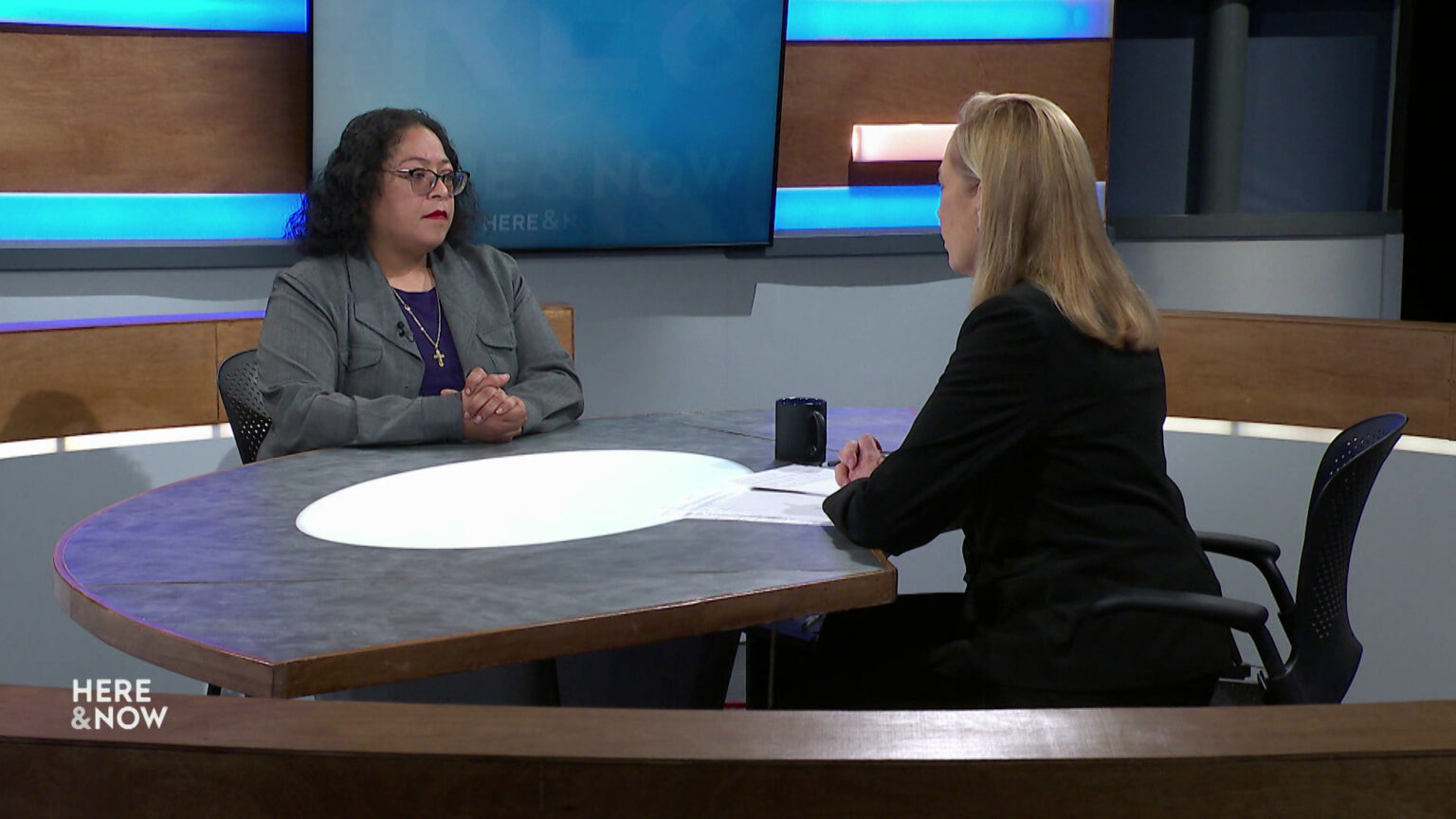
Frederica Freyberg and state Rep. Sylvia Ortiz-Velez (Credit: PBS Wisconsin)
In the face of the federal immigration crack-down, state Rep. Sylvia Ortiz-Velez and other Democrats have proposed legislation to prevent Wisconsin law enforcement from assisting ICE in detaining people inside churches, schools and hospitals. A freeze on trillions of dollars in federal grants and loans to states is in limbo, but a chaotic rollout left agencies and tribal nations considering the implications — Jane Graham Jennings of The Women’s Community said a loss of this funding would put vulnerable women in danger, while Oneida Nation Chairman Tehassi Hill said it’s difficult to determine the implications of broad executive orders.
State Rep. Sylvia Ortiz-Velez
(D) Milwaukee
- A proposal by Democratic state legislators would prevent state or local police from helping ICE detain people in sensitive areas — namely, churches, schools, hospitals and publicly-owned buildings — and would prohibit state taxpayer dollars from aiding in the deportation of immigrants. Rep. Ortiz-Velez’s Assembly district on the south side of Milwaukee has the largest Hispanc population in Wisconsin.
- Ortiz-Velez: “I’ve never seen anything like it. People are scared about whether or not they’re going to come home from work and be able to pick up their kids. People are scared if they’re going to be swept up in raids, even regular citizens. And the reason we’re scared is because of a past history in this nation when mass deportations have happened and also because some of the directives, the extreme directives, that are coming out of Washington, D.C.”
Jane Graham Jennings
Executive Director, The Women’s Community
- When the Trump administration froze trillions of dollars in grants and loans going to states, Wisconsin saw more than $28 billion in federal funding put in jeopardy. A federal judge temporarily blocked that freeze, at which point the Trump administration appeared to walk back its action, prompting a second federal judge to issue another order to temporarily block the freeze. The federal funding in question goes to health care, education,tribal nations and nonprofit agencies. The Women’s Community in Wausau provides services to domestic abuse survivors and receives more than $25,000 dollars a month from federal grants, accounting for 20% of its budget. Graham Jennings said the most critical concern if that money is lost is a program that pays rent for up to a year for survivors to get out of unsafe environments.
- Graham Jennings: “That’s the most difficult part. because they are relying on that to be able to maintain a safe home — so they are back in a situation that they have to choose between homelessness or returning to a violent home. That is the particular fund we’re most concerned about.”
Chairman Tehassi Hill
Oneida Nation
- The 11 tribal nations in Wisconsin receive funding from dozens of federal grant programs, including nearly $3 billion for health, $14 million for broadband and more than $10 million connected to higher education. Tribal leaders are concerned the funding is vulnerable, but Chairman Hill said it’s difficult to ascertain the impacts of the Trump administration’s orders.
- Hill: “I think it is alarming to a certain extent, just because a lot of the president’s orders are pretty broad. And so they’re not specific enough for us to be able to analyze and be like, OK, this is how it’s going to affect us, because a lot of it is just left up to the discretion of either political appointees or long-term employees who don’t necessarily have the authority to make the decisions that they normally would during these transition period. So it’s really kind of like a wait and see at this point how those decisions are made and they trickle down through the system to have an effect on tribal nations.”
Watch new episodes of Here & Now at 7:30 p.m. on Fridays.
 Passport
Passport




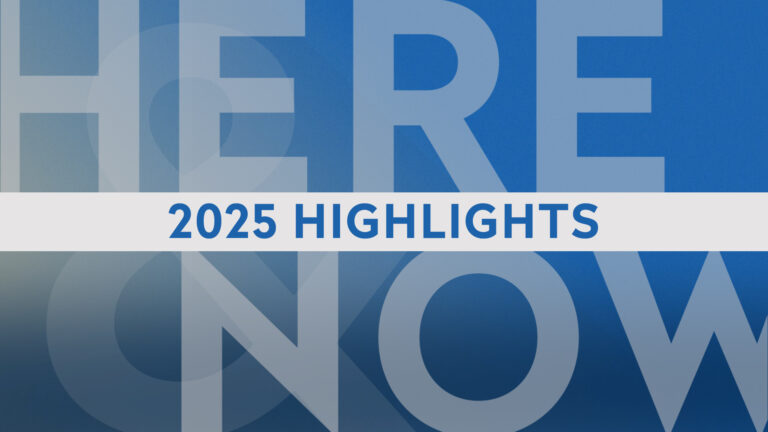
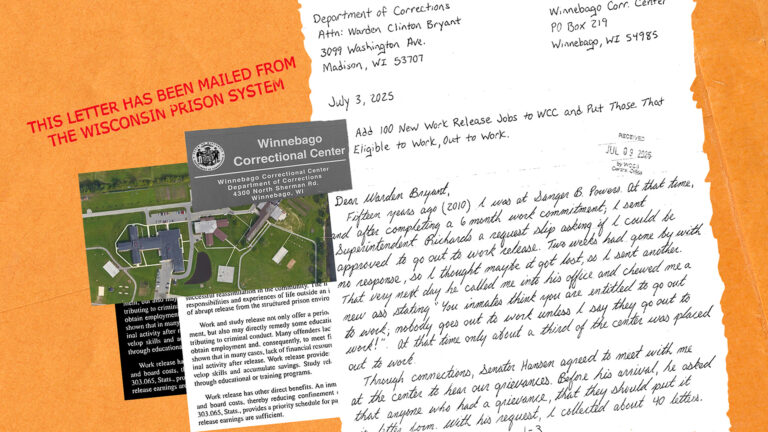
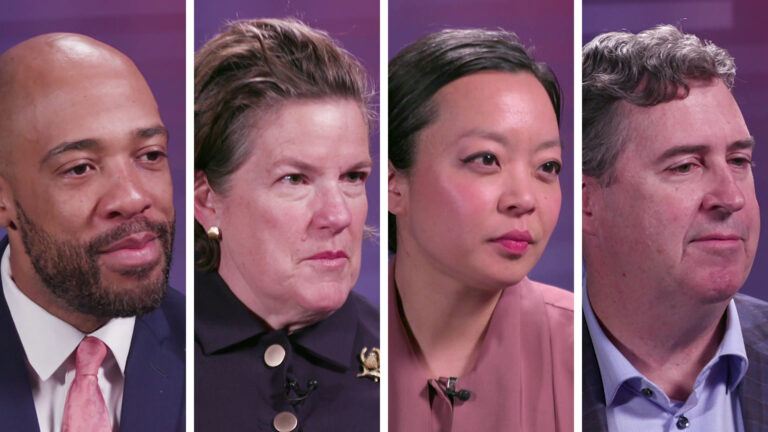
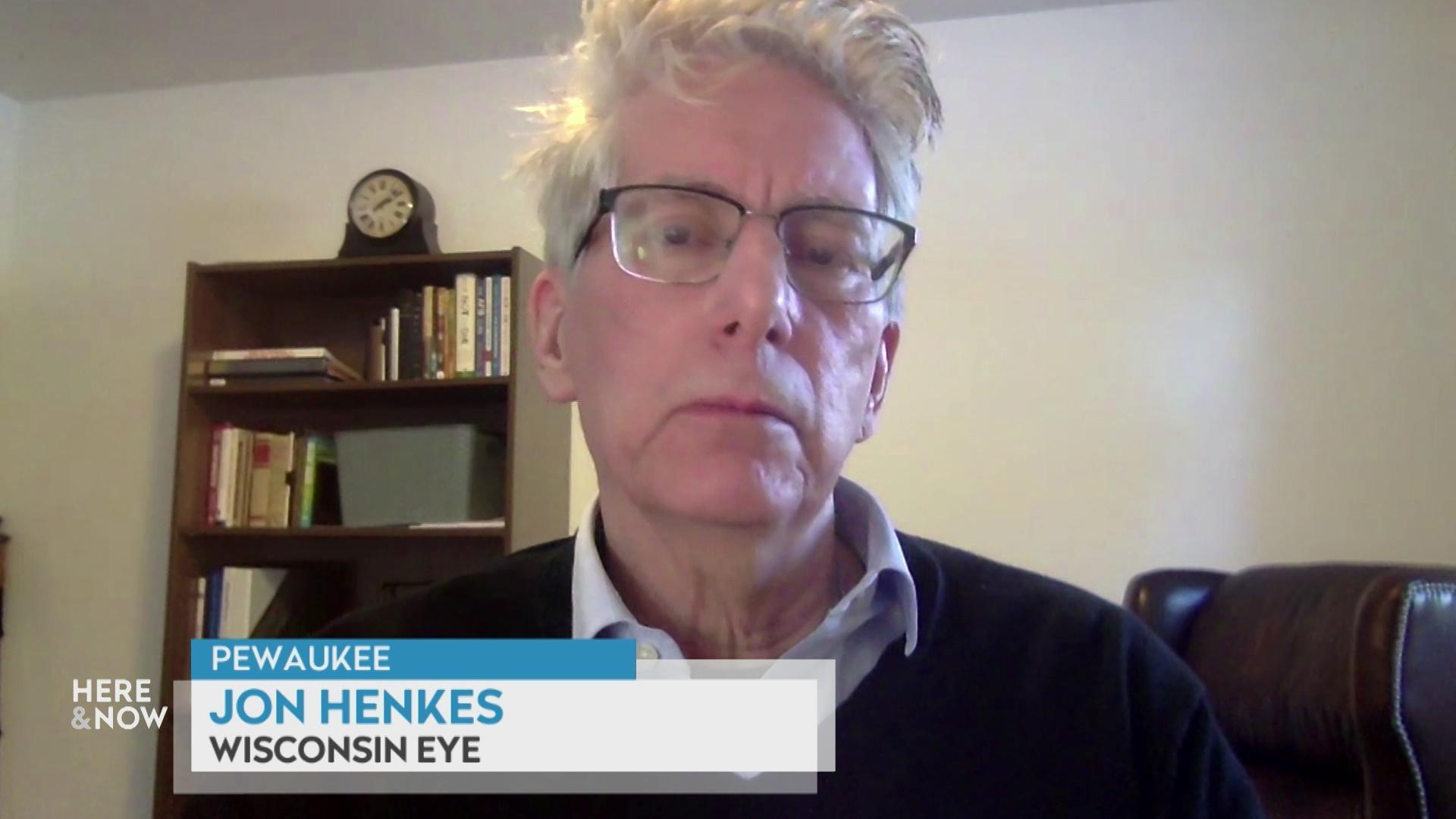



Follow Us